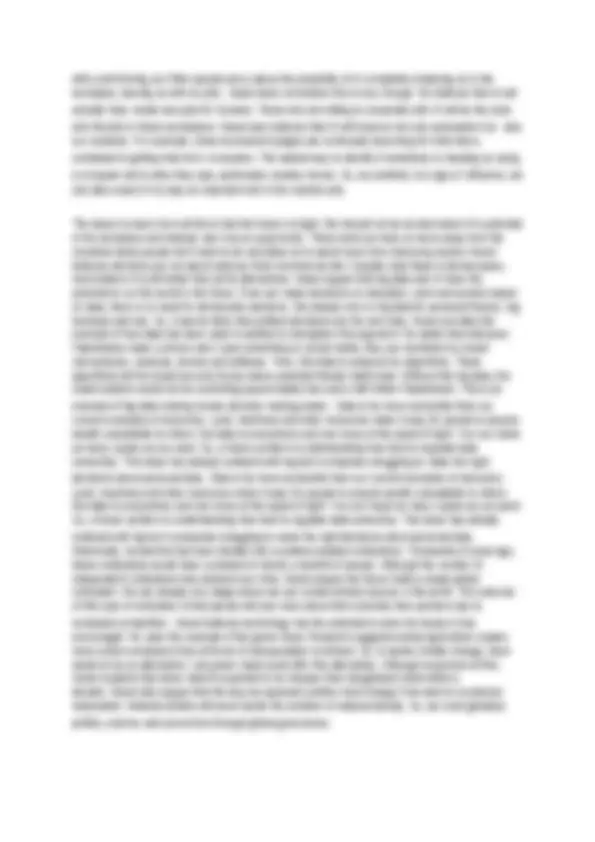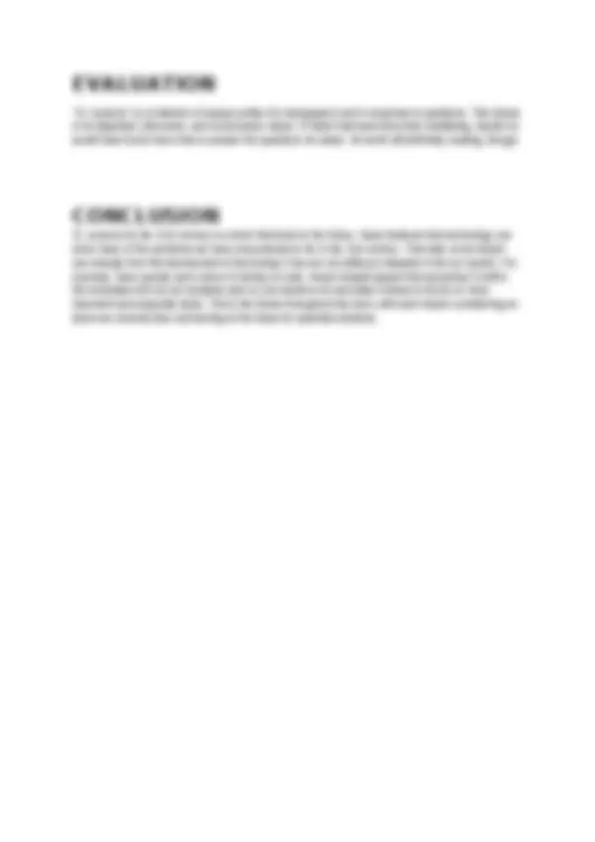




Study with the several resources on Docsity

Earn points by helping other students or get them with a premium plan


Prepare for your exams
Study with the several resources on Docsity

Earn points to download
Earn points by helping other students or get them with a premium plan
Community
Ask the community for help and clear up your study doubts
Discover the best universities in your country according to Docsity users
Free resources
Download our free guides on studying techniques, anxiety management strategies, and thesis advice from Docsity tutors
It is very informative in this topic.
Typology: Papers
1 / 4

This page cannot be seen from the preview
Don't miss anything!



21 Lessons for the 21st Century is a book written by bestseller Israeli author Yuval Noah Harari and published in August 2018 by Spiegel & Grau in the US and by Jonathan Cape in the UK. 21st century skills as “a broad set of knowledge, skills, work habits, and character traits that are believed to be critically important to success in today’s world, particularly in collegiate programs and contemporary careers and workplaces.”Traditionally, these skills have been summed up as the “4 Cs”: communication, collaboration, critical thinking, and creativity. These capabilities, originally identified almost 20 years ago by the Partnership for 21st Century Skills, may not be new, but they continue to offer a structure for thinking about modern education. The 4 Cs of 21st century learning emphasize the crucial nature of problem solving, analytic thinking, working together, and thinking outside the proverbial box. They serve as inspiration and guidance for educators looking to expand beyond traditional classroom methodologies. 21 lesson for the 21st^ century is an outline of the most pressing questions in the modern world. The issue is most people do not have the luxury of time to investigate these questions. That said, all those who do not take the time to consider these dilemmas will be left behind when they overwhelm us. So, Yuval Noah Harari argues this book can help level the global playing field by offering knowledge. He aims to help more people join the debate about the future of the human species. This future will include advanced artificial intelligence and one global civilization.
Yuval Noah Harari starts the book by talking about the disillusionment visible in modern society. For example, the political disillusionment seen in many European countries. He argues that one of the driving factors for this disillusionment is information overload. Our brains do not easily process facts, numbers and equations. Humans think in stories, and this is how political disillusionment can spread, leading to ideologies like fascism and communism. The lesson to learn from this is you should utilize stories in your business endeavors. You should also ensure these stories are simple. The future offers opportunities for new types of stories that include humans, superhumans and artificial intelligence. Harari believes AI will become increasingly sophisticated. He also believes that superhumans will soon be created that combine AI and humans. Despite a change in the characters in our stories, Harari still believes that the liberal story we see today will prevail. The future of the workplace will include significantly more computers than we see today. As we develop a better understanding of human emotions, desires and choices, computers will become more versatile in workplaces. Harari uses the example of self-driving vehicles. He cites a study by the US National Highway Traffic Safety Administration from 2012. This study found that 31% of fatal crashes involved alcohol abuse, 30% speeding and 20% distracted drivers. None of these crashes would be possible
“21 Lessons” is a collection of essays written for newspapers and in response to questions. This shows in its disjointed, discursive, and inconclusive nature. If Harari had spent less time meditating, maybe he would have found more time to answer the questions he raises. Its worth still definitely reading, though.
21 Lessons for the 21st Century is a book that looks to the future. Harari believes that technology can solve many of the problems we have encountered so far in the 21st century. That said, some issues can emerge from the development of technology if we are not willing to integrate it into our society. For example, many people worry about AI taking our jobs. Harari instead argues that accepting AI within the workplace will cut out mundane jobs no one wants to do and allow humans to focus on more important and enjoyable tasks. This is the theme throughout the book, with each lesson considering an issue we currently face and looking to the future for potential solutions.